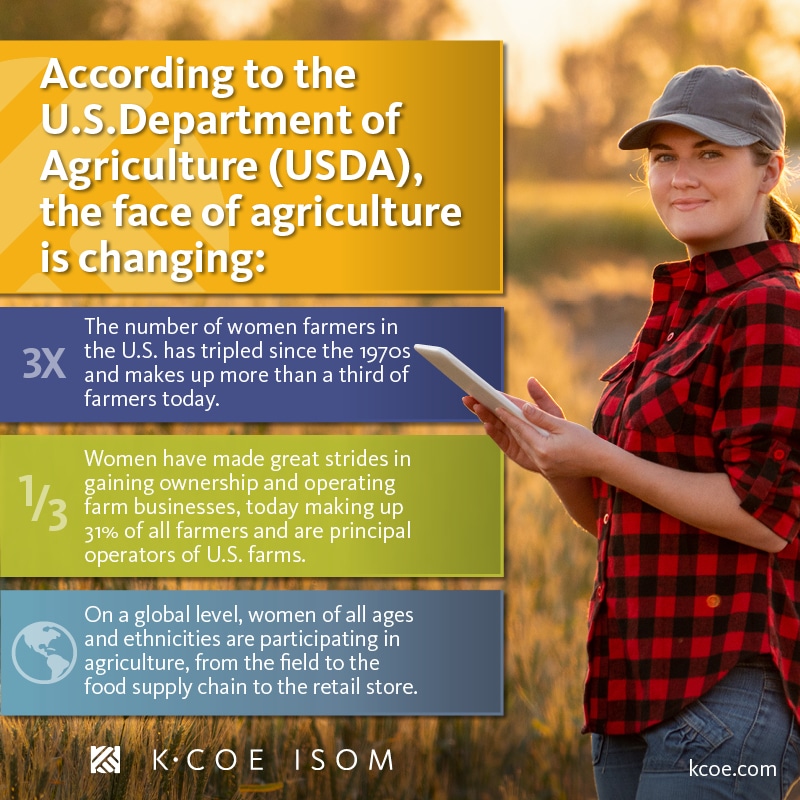Reading Time: 2 minutesBy Jeanne Bernick, Principal and Growth Leader, K·Coe Isom
Back in 2010, a report established that a high level of ‘social sensitivity’ – a trait predominantly exhibited by women – had the potential to impact the safety, security, and sustainability of our food system. Gradually, a steady shift has been taking place on farms both nationally and globally. Women are entering into leadership positions, and their natural strengths – creativity, empathy, and collaborative qualities – are aligning with the agriculture gaps created by a more dynamic and challenging environment. As studies have demonstrated, women affecting change in leadership roles within organizations are positively affecting financial performance, employee talent, and innovation.
Women Feeding the Future
More women are involved in feeding the future as an awakening is happening in modern agriculture. Gone are the days you needed forearms the size of a fence post to drive a tractor – the modern farm is run by technology, drones and sensors. It takes brains, not brawn, to understand trade issues and highly volatile commodity markets, and to manage the ups and downs of consumer trends and demand.

Cause and Effect
Women with business experience are leaving the C-Suite to become full partners and owners in farming operations and leaders in agribusiness. An increasing number of female leaders are making the tough decisions when it comes to food purchasing, logistics and governmental regulations.
With 9 billion mouths to feed on this planet by 2050, we need agricultural leaders of every size, shape and gender. As more women enter the male-dominated field, they’ll be managing an even bigger share of land. This requires a newfound focus on sustainability for the longevity of the land, and to meet consumer demand for sustainably-sourced food.
That consumer demand is rising….a
BCG survey of 9,000 consumers in nine countries found that most (86%) want food products that are “good for the world and me”—items that are labeled organic, natural, ecological, or fair trade. Indeed, according to another BCG study completed another study that reports 70% of US sales growth in retail chains comes from sales of sustainable products.
What does this shift mean for agriculture?
As demand for sustainable, nutritious and safer food increases, farmers are implementing new practices to produce higher-quality crops. Women represent ownership in more organic farms than any other type of farm across the world.
Globally, especially in regions where farmers don’t have access to modern technologies, women are leading sustainable co-ops to share resources and building education centers around sustainable production techniques. Combine this with the fact that women make up half of the consumer dollar and workforce, and you have a powerful force in supporting sustainable agriculture.
It should be empowering for women to know they have a role in feeding the future. Female collaboration and communication will bring new ideas to the discussion on strategic, sustainable farm systems. Women affecting change will be key to leading and supporting modern agriculture.












